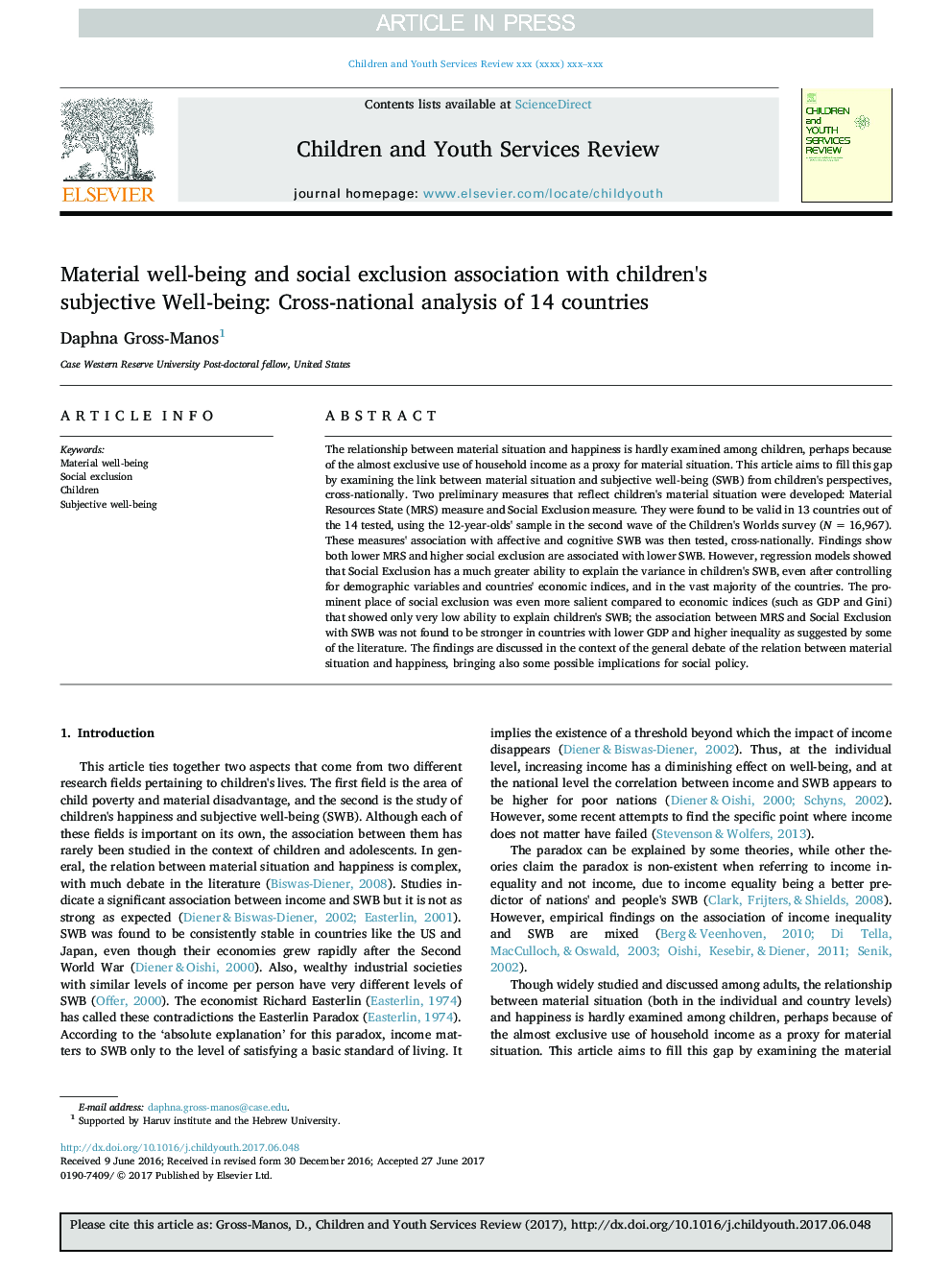| Article ID | Journal | Published Year | Pages | File Type |
|---|---|---|---|---|
| 4936229 | Children and Youth Services Review | 2017 | 13 Pages |
Abstract
The relationship between material situation and happiness is hardly examined among children, perhaps because of the almost exclusive use of household income as a proxy for material situation. This article aims to fill this gap by examining the link between material situation and subjective well-being (SWB) from children's perspectives, cross-nationally. Two preliminary measures that reflect children's material situation were developed: Material Resources State (MRS) measure and Social Exclusion measure. They were found to be valid in 13 countries out of the 14 tested, using the 12-year-olds' sample in the second wave of the Children's Worlds survey (NÂ =Â 16,967). These measures' association with affective and cognitive SWB was then tested, cross-nationally. Findings show both lower MRS and higher social exclusion are associated with lower SWB. However, regression models showed that Social Exclusion has a much greater ability to explain the variance in children's SWB, even after controlling for demographic variables and countries' economic indices, and in the vast majority of the countries. The prominent place of social exclusion was even more salient compared to economic indices (such as GDP and Gini) that showed only very low ability to explain children's SWB; the association between MRS and Social Exclusion with SWB was not found to be stronger in countries with lower GDP and higher inequality as suggested by some of the literature. The findings are discussed in the context of the general debate of the relation between material situation and happiness, bringing also some possible implications for social policy.
Related Topics
Health Sciences
Medicine and Dentistry
Perinatology, Pediatrics and Child Health
Authors
Daphna Gross-Manos,
